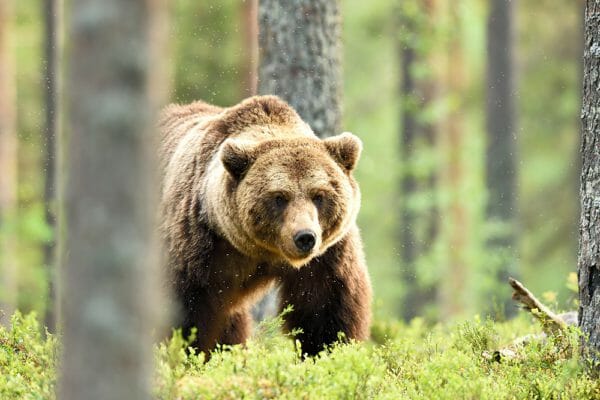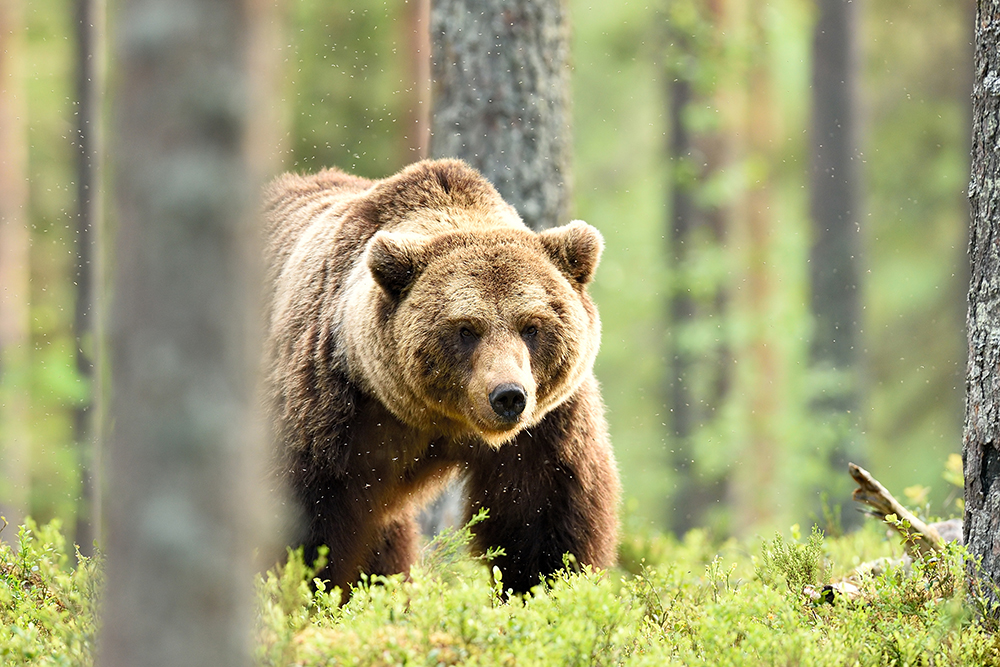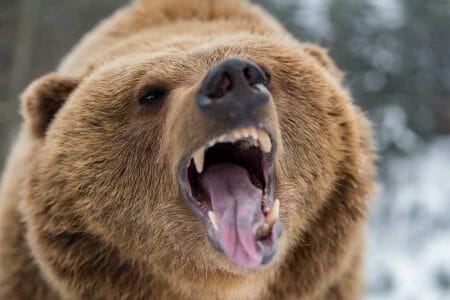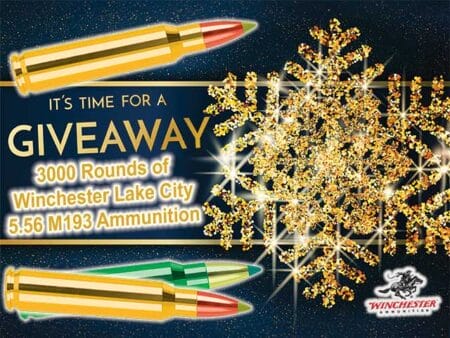
On December 18, 2017, the Canadian Province of British Columbia banned hunting of grizzly bears, except by indigenous tribes. It appears to be a natural experiment that will help determine the effects of grizzly bear hunting practices. Tribes known as “First Nations” are allowed to kill bears. The exact effect of the ban is not clear or precise. Taltan hunters still hunt the bears, but they are not killing enough of them.
But when the B.C. government banned the grizzly bear trophy hunt in 2017, the system was thrown out of whack. While the Tahltan could still hunt for food, social and ceremonial purposes, sport hunting, which took about 100 bears a year from the territory, was strictly prohibited.
Since the ban, members of the Tahltan have reported increasing numbers of grizzlies in their territory, which spans nearly 100,000 square kilometres, Day said. Community members have also reported that those bears are becoming more aggressive toward humans. More grizzlies also means fewer fish and ungulates, important food sources for the community, according to Day.
The Tahltan aims to kill 100 grizzly bears, 150 black bears, and 250 wolves.
The Tahltan territory is about 11% of British Columbia. The “ban on hunting” is not much of a ban in a territory where the residents have a $1,000 incentive to kill grizzly bears. Grizzly bears are difficult to hunt and kill, so the $1,000 incentive is needed. It is unknown how many other tribes regularly kill grizzly bears or how much territory is covered. It appears grizzly bears have been significantly devalued in Tahltan territory. Outside hunters formerly paid $15,000 or more for the privilege of hunting and killing a trophy grizzly bear.
The B.C. government has made a choice. They prefer to see grizzly/brown bears kill ungulates rather than have people kill ungulates.
Before the ban on hunting by everyone but First Nations, the permits aimed for about 682 bears to be harvested each year. This is about 4.5% of the bear population and has maintained a large and stable population of 15,000 grizzly/brown bears. Bear hunts brought in a significant amount of cash to the tribes. From Meateaters.com:
According to Natural Resources Minister Doug Donaldson, the decision to end the grizzly bear hunt in B.C. had less to do with the status of the bear population than the public’s general perception of grizzly bear hunting.
“People in the province have come to their understanding, their point of view that the trophy hunting of grizzly bears is not a socially acceptable practice in B.C. in 2017,” Donaldson told the Globe and Mail around the time of the ban. “We recognize that there will be some loss of revenue in small communities from many aspects.”
With the announcement of the ban, Donaldson and other members of Canada’s New Democratic Party (NDP) were able to make good on a much-celebrated campaign promise.
The primary promoter of the British Columbia ban on grizzly bear hunting was Nature United, a radical deep-green organization. Nature United is primarily funded by the Nature Conservancy. From Nature United:
We are the Canadian affiliate of The Nature Conservancy, a global conservation organization with more than a million members and a diverse team that includes more than 400 scientists.
The ban on grizzly hunting is a philosophical statement. It is funded by people who do not have to live with the consequences of their actions.
The B.C. system has maintained a stable grizzly population with numerous beneficiaries. Those who benefited were outspent by outside funding, relying on emotion. As the tribes still practice hunting, the change will primarily be who kills grizzly bears and how much grizzly bears are valued. It remains to be seen if tourism to view grizzly bears will produce as much income as income from hunting bears.
Grizzly bear hunting in British Columbia has not stopped. The number of people eligible to hunt has been dramatically reduced.
About Dean Weingarten:
Dean Weingarten has been a peace officer, a military officer, was on the University of Wisconsin Pistol Team for four years, and was first certified to teach firearms safety in 1973. He taught the Arizona concealed carry course for fifteen years until the goal of Constitutional Carry was attained. He has degrees in meteorology and mining engineering, and retired from the Department of Defense after a 30 year career in Army Research, Development, Testing, and Evaluation.








It looks like the tribe needs to become paid guides. They could even make the customer honorary tribal members during the hunt if needed. I know people that would pay for such a service. Look at all the paid hunting opportunities here in the lower 48.
The tribes need to live under the same rules as everyone else.
REMEMBER THIS QUOTE:
“HI!. I’m from the government, and I’m here to help.”
-Ronald Reagan
On one of the scariest things you can ever hear.
Affirmative action never goes away, does it. Indians can kill a bald eagle for “religious reasons”, if a white does it, it’s a prison sentence. Or whale for traditional food source,(Makah tribe, NW Wa, where nobody would eat it) if a white kills one, it’s a prison sentence. People hunt black bears and eat them, and although I could be wrong, I’ve never heard of anyone harvesting a brown bear or a grizzly bear for food, not even when I lived in Alaska, only for trophies. Getting right down to it, they’re not any more Canadian or American, than any… Read more »
When humans medal with nature it never ends well . The human race has been conditioned from the beginning of time to screw things up and we have been very successful .
Stupid is as stupid does.
Getting the first nations to go along when the ban was a huge reason it passed.
Be careful what you wish for.
they did hurt the tribes,made them need the gobers
About time those 400 scientist have to camp in Grizzly back country with nothing but pepper spray to season their attitude.
I’m not familiar with Canadian law. Do they even have a constitution or are they just subjects? Do Canadians have any of the protections of individual Rights that our Constitution affords us?